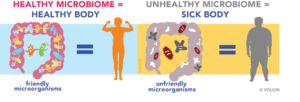Fat is not your fault
Fat is not your fault
Fast is not yout faut:Do you ever get the feeling that your metabolism has been hijacked; that you simply cannot control your body? Have you ever had the feeling that you put on weight just by looking at food, and wondered why your friend can eat as much as she wants and still be thin?
Have you ever had the feeling that you get fat just by looking at food, and wondered why your friend can eat as much as she wants and still be thin? Have you ever felt imprisoned by your own hunger and uncontrollable desire to eat, as if something compelled you to eat food that you know is not good for you, but that you simply cannot resist? Or that you feel hungry practically all the time, even after you have finished eating? Do you ever get the feeling that all your efforts to lose weight are being secretly sabotaged by your own body? These feelings are not excuses, rationalizations, or indications of a lack of willpower.
They represent your body’s perception that you are not just a person Fat is not your fault– you are an ecosystem. There is a microscopic world inside you whose biology is fundamental to your biology, you may not be aware of these tiny organisms that live inside your body, they affect you. The state of your microbiome determines:

Fat is not your fault – The kind of food you feel like eating
sweets and starches, or healthy fruits and vegetables. When you are hungry – all the time or only when you really need to eat. How food is metabolized – Whether as fat that accumulates on your waist and belly or as energy used for your daily needs, so that even if you eat well, you will never gain weight.
Important Weight Loss Facts
With a healthy microbiome, you will not feel hungry all the time, you will not feel the need to eat certain foods, and you will not feel that your metabolism is simply “out of control. You can alter your microbiome with amazing speed. In a matter of hours, it can lead you to a state of imbalance, causing weight gain. And in just a few weeks, you can restore your balance, making you healthy.
Pay close attention now! We are going to see here what you can do to improve the health of your microbiome and why this is the best thing you can do for your appetite, metabolism, and weight.
I really think you will enjoy doing the Microbiome Diet. The recipes are fantastic, you will use food combinations that will leave you feeling satiated and satisfied, I believe you will be much more excited and motivated to undertake this weight loss journey with our website getalongwithlife.com. So let’s look at some of the extraordinary research that links the microbiome to weight loss, while at the same time you learn a little bit more about your microbiome.
Fat is not your fault – Why am I always hungry?
A very interesting account by Dr. Raphael Kellman about one of his patients named Kendall, crying told him – I used to eat oatmeal with banana slices for breakfast, because I read that oatmeal is good for cholesterol and banana is high in potassium. Then I read that the best way to lose weight was to eat a low-carb diet, so I switched to eggs, whole wheat toast, juice and tea. My lunch was always healthy: a big portion of salad with grilled chicken and lots of vegetables. My dinner too: boiled fish, a sweet potato, and steamed broccoli or cabbage, or something like that. I know it should be enough; I know that for sure! But I can’t lose weight, and I am starving all the time!
Kendall says that sometimes she had the willpower to stick to her diet, but in general she couldn’t. She was always craving pasta with sauce, cake, or chocolate ice cream. She was always craving pasta with sauce, cake, or chocolate ice cream. Whether or not she resisted these temptations, it was as if she was never satisfied. Kendall had gained almost seven pounds in the last year. – And I was already about seven pounds overweight,” she said. – I knew I should improve my diet, but honestly, Dr. Kellman, I don’t even know why I should bother, because after being on a low-carbohydrate diet for three whole months, I only managed to lose a pound and a half. How can I lose only a pound a month? What is wrong with me?
When Dr. Raphael Kellman asked Kendall to answer some questions, he saw many indications of an imbalanced microbiome and compromised gut health. But when he laid out this possibility, she gave a negative head gesture. – I can assure you that there is nothing wrong with my digestion,” said Kellman. My intestines work like clockwork: once or twice a day. If there is something wrong with me, it is not that.
Dr. Raphael Kellman took the questionnaire he had taken and showed Kendall the symptoms she had pointed out: headache, difficulty concentrating, sporadic eczema, mild anxiety and a little insomnia. She widened her eyes in surprise. – Are you saying that all these things are because of my digestion? – she asked incredulously. – Sometimes digestive problems manifest themselves in unexpected ways – he explained – After all, you are one body: a body made up of many interconnected systems that are always in communication. And your microbiome is an amazing social network that also participates in the conversation. The combination of weight gain, appetite and symptoms you mentioned reveals that your microbiome and your gut are out of balance and need a little help.
Summing up Kendall’s story one year she has lost most of her unwanted weight and is optimistic about losing the remaining pounds. But even before losing the first five pounds, she felt like a different woman. – She said that now I am only hungry when it is really time to eat. I don’t even think about food anymore. Of course I love a good meal, but it is no longer the highlight, the most anticipated moment of the day. It is as if I used to be a prisoner and now I am out of prison.

Fat is not your fault – No more hunger
The microbiome can affect your hunger in many ways, but let’s look at a few. First, however, I want you to know at least something about this complex relationship, so that you will understand why I say that taking care of your microbiome
will help you regulate your appetite and prevent you from being “always hungry,” as was the case with Kendall. One of the most fascinating microorganisms in the human microbiome is Helicobacter pylori, or H. pylori. In recent years, H. pylori has been the subject of negative press coverage because it is one of the leading causes of peptic ulcer disease. For this reason, scientists and doctors have engaged in a successful campaign to rid the human body of H. pylori, without stopping to consider whether there would be any collateral damage. It turns out that H. pylori regulates the production of gastric acids – a useful task, since we need gastric acids to digest the food we eat, and also to neutralize viruses and other toxic invaders that may enter our bodies through the mouth. Even more important for all those on a diet, however, is the fact that H. pylori also helps regulate the production of ghrelin, the hormone that tells the brain when the body needs food.
A person whose microbiome includes H. pylori has reduced levels of ghrelin after eating. As a result, hunger dissipates until the time of the next meal. For obvious reasons, this is how our bodies are supposed to work. H. pylori also helps regulate the levels of another hormone, leptin. With a healthy microbiome, leptin levels increase as ghrelin levels decrease, highlighting satiety, suppressing appetite, and providing an energy spike.
We are in a series of articles talking about Microbiome, for more tips and information visit our site
